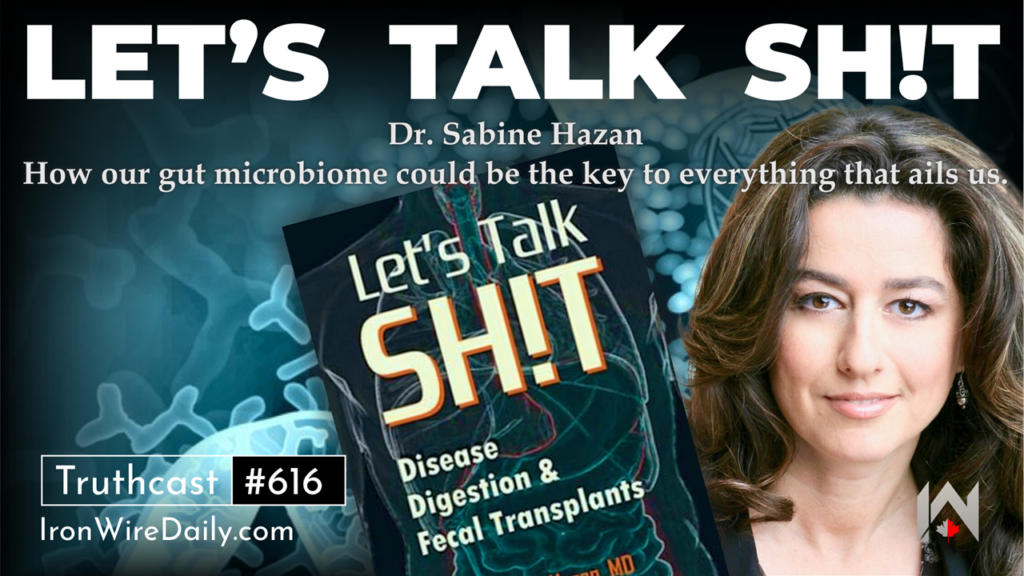No New Autism Registry, HHS Says, Walking Back NIH Director’s Claim + More
Source: Children’s Health Defense
No New Autism Registry, HHS Says, Walking Back NIH Director’s Claim
The federal health department is not creating a new registry of Americans with autism, a Department of Health and Human Services (HHS) official said in a written statement Thursday. Instead, the official said, HHS will launch a $50 million research effort to understand the causes of autism spectrum disorder and improve treatments.
The announcement arrives two days after National Institutes of Health (NIH) Director Jay Bhattacharya announced the intent to create such a registry at an all staff meeting, kicking off a firestorm of panic and confusion among autism self-advocates and the broader research community. Much of the fear centered around Bhattacharya’s remarks that the government would pull health data from private sources, such as electronic health records maintained by health care providers, pharmacy data, insurance claims and even wearables like smart watches and fitness trackers.
While the NIH has dozens of existing registries for diseases and routinely awards grants to study conditions such as autism, the NIH director’s words chilled the community, leaving many people worried, including some who expressed their fears on social media.
Once All-Powerful, Pharma’s Allies in Washington Are Fleeting
Big Pharma isn’t sure how to handle Donald Trump’s Republican Party.
Trump is pledging to impose tariffs on drug imports, while Health Secretary Robert F. Kennedy Jr. has vilified the drug industry’s profits and questioned the safety of its products.
Long a lobbying powerhouse in Washington, pharma’s struggling to settle on a strategy for defending itself, according to six industry lobbyists and three company officials who spoke to POLITICO. All were granted anonymity to reveal internal discussions.
“It’s just paralyzing. You don’t know what’s going to happen next,” said one of the lobbyists. Pharma faces two threats that no other GOP president of the modern era would have made:
First, Trump says he wants to slap drugmakers with tariffs that could raise prices for medicines in order to push them to manufacture their products in America.
Second, Trump has appointed a vociferous critic of the drug industry to oversee the department that regulates it. Kennedy believes the industry makes dangerous products and keeps Americans dependent on them for profit.
HHS Reverses Course, Says Long-Running Women’s Health Study Will Retain Funding
Days after the Women’s Health Initiative, one of the largest and longest-running women’s health studies in the world, announced that the Department of Health and Human Services (HHS) was terminating some of the initiative’s funding, the agency has reversed course.
“These studies represent critical contributions to our better understanding of women’s health. While National Institutes of Health (NIH) initially exceeded its internal targets for contract reductions, we are now working to fully restore funding to these essential research efforts,” an HHS spokesperson told Fierce Biotech in an email. “NIH remains deeply committed to advancing public health through rigorous gold standard research and we are taking immediate steps to ensure the continuity of these studies.”
On the social media platform X, HHS Secretary Robert F. Kennedy Jr. said that reports of cuts to the WHI were “fake news.” “We are not terminating this study,” Kennedy wrote. “We all recognize that this project is mission-critical for women’s health.”
Colorado Farmers Just Lost Their Most Important Mental Health Lifeline
Colorado farmers and ranchers lost access to a critical lifeline when the U.S. Department of Agriculture (USDA) last week froze funding for a program that supports the mental health of a population whose suicide rate is at least two times higher than the average population, and whose profession is marked by uncertainties in the weather, market and cost of operating.
LeeAnne Sanders, spokesperson for the Rocky Mountain Farmers Union, said annual funding for the union’s AgWell program in Colorado, Wyoming and New Mexico is just $100,000 to $160,000, but that funding helps counter the stresses of farming and ranching, which contribute to mental health challenges and the statistically higher rates of suicide.
AgWell funding comes from a $10 million federal grant to the USDA’s Farm and Ranch Assistance Network funneled in part through the Western Regional Agricultural Stress Assistance Partnership. The Western regional partnership recognizes that high levels of stress are present in agricultural communities from causes like unstable finances, carrying the pressure of multigenerational farm lineage, injury, acute illness, adverse weather and climate change.
The partnership helps producers in 13 Western states from Washington to New Mexico as well as Alaska, Hawaii and four U.S. territories.
USDA Withdraws a Plan to Limit Salmonella Levels in Raw Poultry
The U.S. Department of Agriculture (USDA) will not require poultry companies to limit salmonella bacteria in their products, halting a Biden Administration effort to prevent food poisoning from contaminated meat. The department on Thursday said it was withdrawing a rule proposed in August after three years of development.
Officials with the USDA’s Food Safety and Inspection Service cited feedback from more than 7,000 public comments and said they would “evaluate whether it should update” current salmonella regulations. The rule would have required poultry companies to keep levels of salmonella bacteria under a certain threshold and test for the presence of six strains most associated with illness, including three found in turkey and three in chicken. If the levels exceeded the standard or any of those strains were found, the poultry couldn’t be sold and would be subject to recall, the proposal had said.
The plan aimed to reduce an estimated 125,000 salmonella infections from chicken and 43,000 from turkey each year, according to USDA. Overall, salmonella causes 1.35 million infections a year, most through food, and about 420 deaths, according to the U.S. Centers for Disease Control and Prevention. The withdrawal drew praise from the National Chicken Council, an industry trade group, which said the proposed rule was legally unsound, misinterpreted science, would have increased costs and create more food waste, all “with no meaningful impact on public health.”














